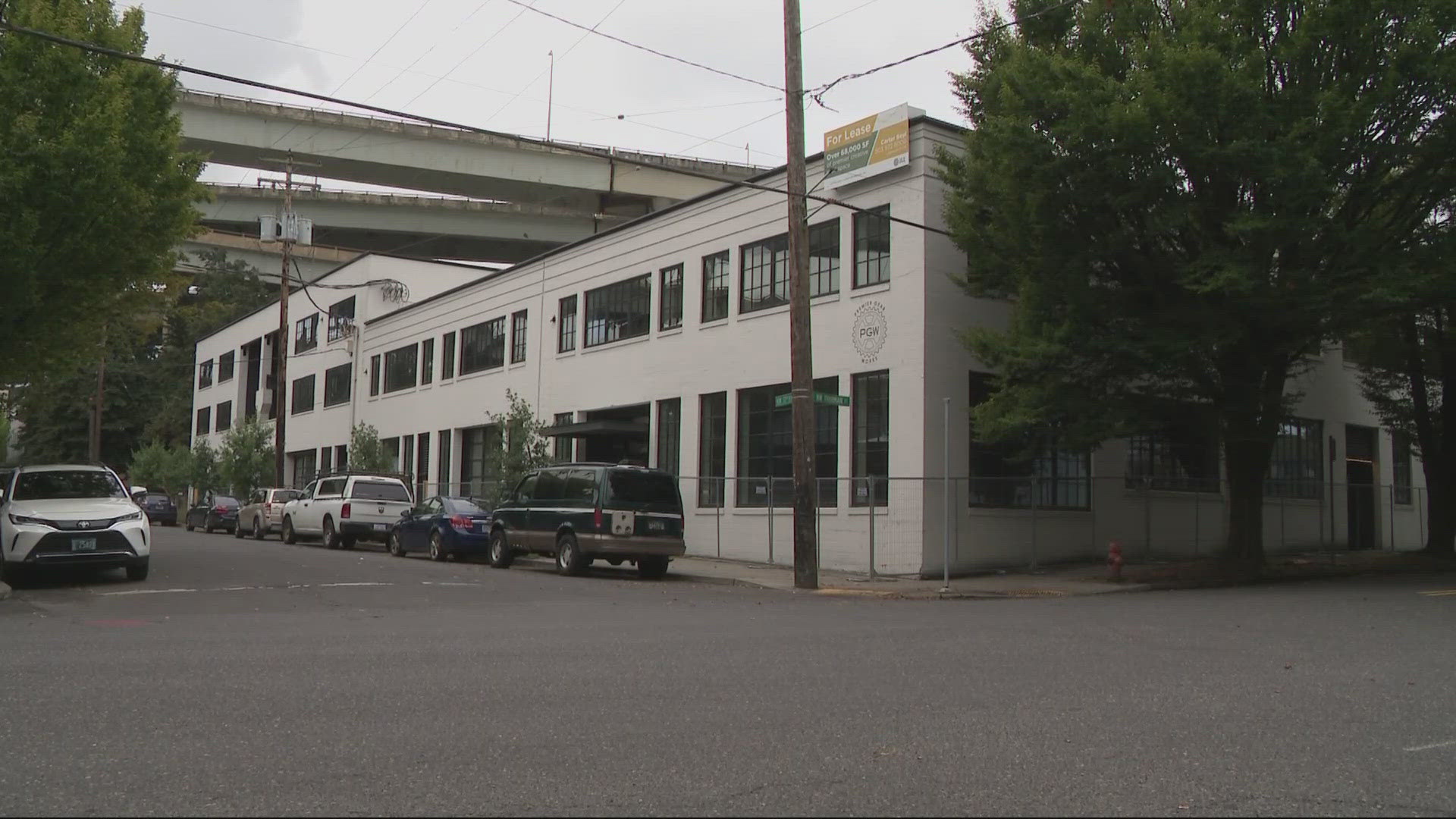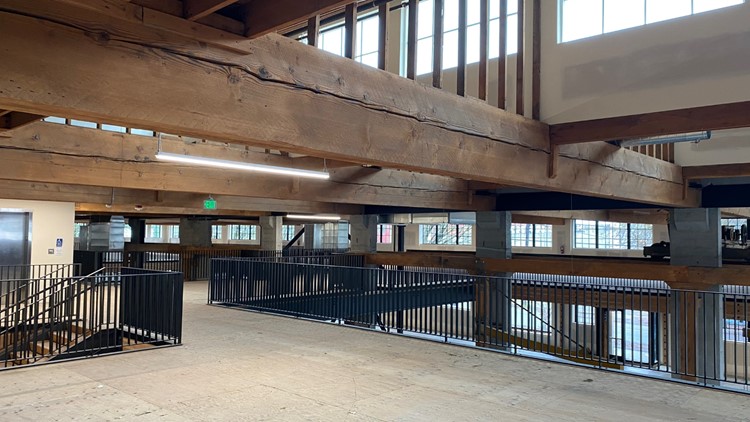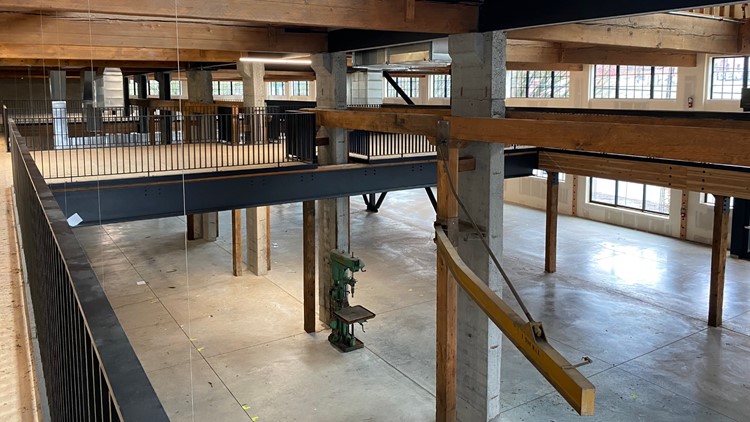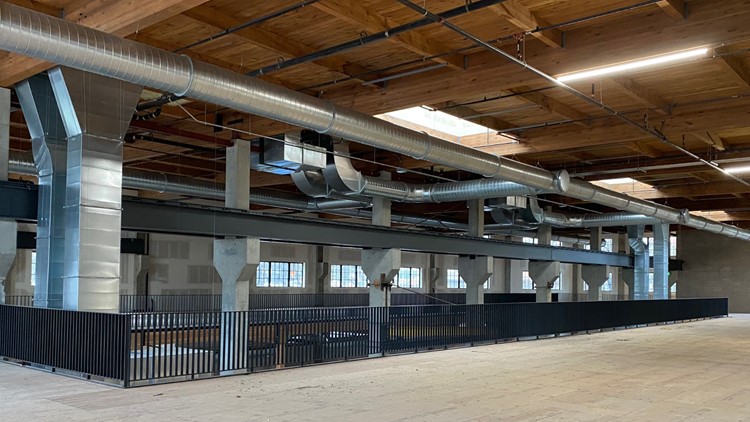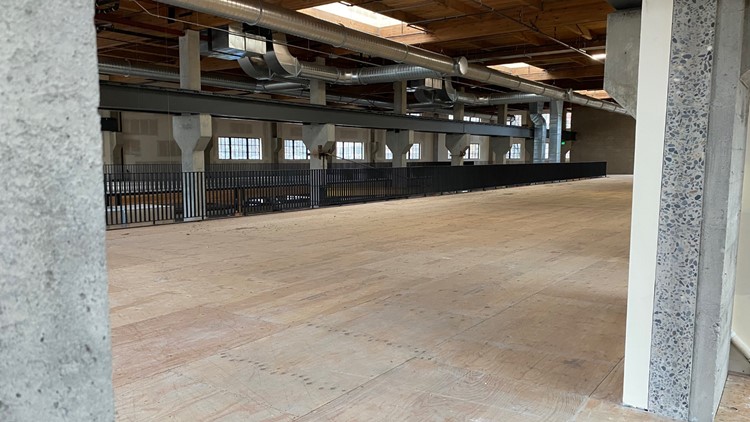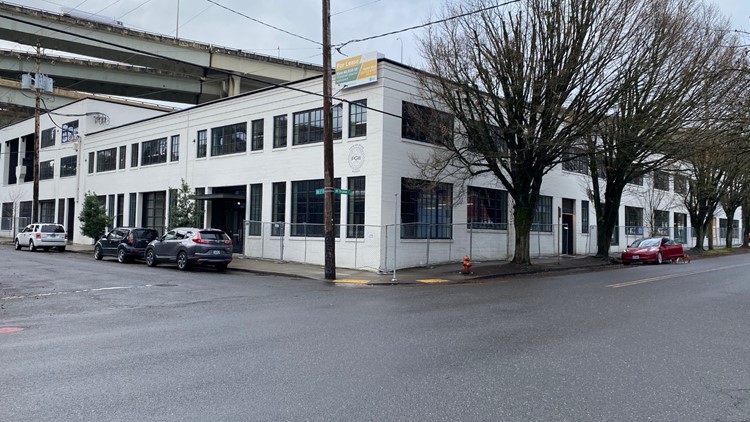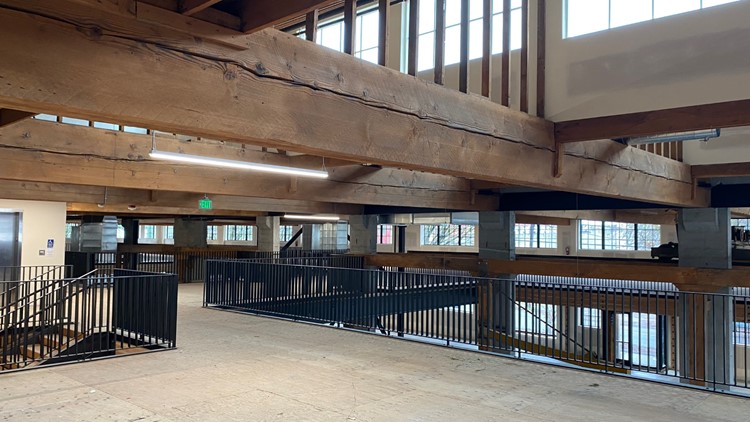PORTLAND, Ore. — On the corner of Northwest 17th Avenue and Thurman Street sits an empty building that could have been the answer to some of Portland’s most pressing problems — at least, that’s what Vanessa Sturgeon thought.
Sturgeon is a private developer and bought the more than 60,000 square foot building in 2018 with plans to rent it out as office space. Partly due to the pandemic, no one would rent it. Instead, she tried making it an emergency crisis center, investing $23 million of her own money. A KGW crew went inside last year.
The plan was to have 16 mental health recovery beds and 80 supportive housing units. Sturgeon needed money from local government to help with construction. As first reported by the Willamette Week, they denied her request last month.
“The city and county are saying they’re not necessarily interested in moving on it,” said Sturgeon. She was asking for $8.6 million from the city and another $7 million from Multnomah County to help with construction costs.
PHOTOS: Empty office space in Northwest Portland may be turned into housing
“PHB was very excited to hear about TMT Development’s innovative proposal for the Premier Gear building. We made a substantial effort to help them achieve their vision for the project, convening two separate panels to review the proposal, each made up of local affordable housing and homelessness experts. After attempting unsuccessfully to help the developer partner with local agencies who could help ensure the project’s efficacy, we determined that the TMT proposal would not be a good use of taxpayer dollars, and was unlikely to successfully serve the target population of chronically homeless individuals with substance use and behavioral health disorders. PHB is deeply supportive of transitional and permanent supportive housing for those in need and has funded the development of over 2,300 supportive housing units in Portland since 2017. We look forward to opportunities to collaborate with TMT on such projects in the future.”
“So, at this point, I don’t know what we can do because if they are not going to accept proposals from the private sector, there’s not much I can do,” Sturgeon said.
“County staff met with representatives from Jackson House and project development partners a number of times to discuss the proposal, and County staff explicitly encouraged the project team to continue refining the project, including looking for alternative funding sources and pursuing county funding opportunities when they become available. To be clear, the County did not have any open funding sources at the time. And we will continue to maintain an open line of communication as future funding opportunities arise.”
“The building is not a viable project at this point,” Sturgeon said.
It's one that could have helped those living right outside its doors, some said.
“It’s needed right now out here for addiction services… It’s a daily occurrence for me, you know; I have to have my dope, or I get sick,” said Richy who has been homeless in Portland for six years.
Sturgeon’s plan was to partner with a California-based group called Jackson House that provides mental health and addiction services. But the city did not approve. Sturgeon said she was told it was because she wasn't partnered with a local nonprofit.
A spokesperson for the Portland Housing Bureau pushed back on that. In an email to KGW, the housing bureau said it does not have a policy to only partner with local nonprofits. The spokesperson said the bureau "regularly partners with private-sector developers and service providers with substantial experience serving the target populations. Successful proposals must present a detailed, clear plan and relevant experience needed to support the ongoing operation of the project including operating funds, programming, services, and partnerships to meet the needs of the resident population."
The future of the building is still to be determined.

